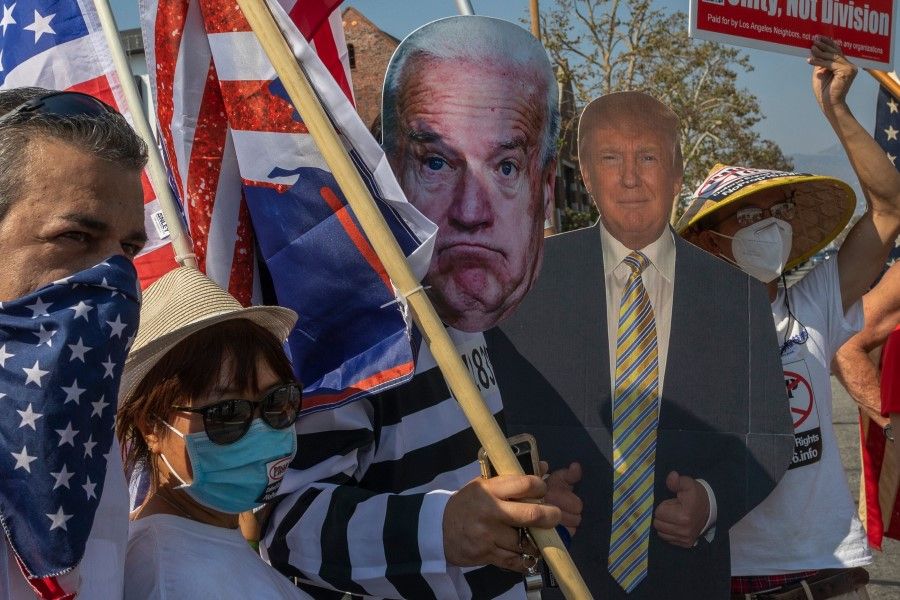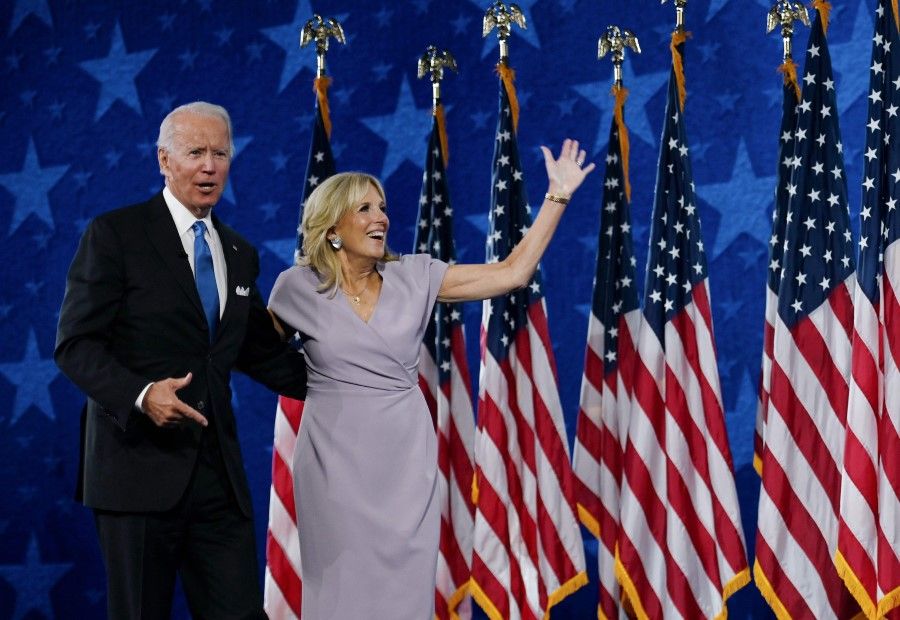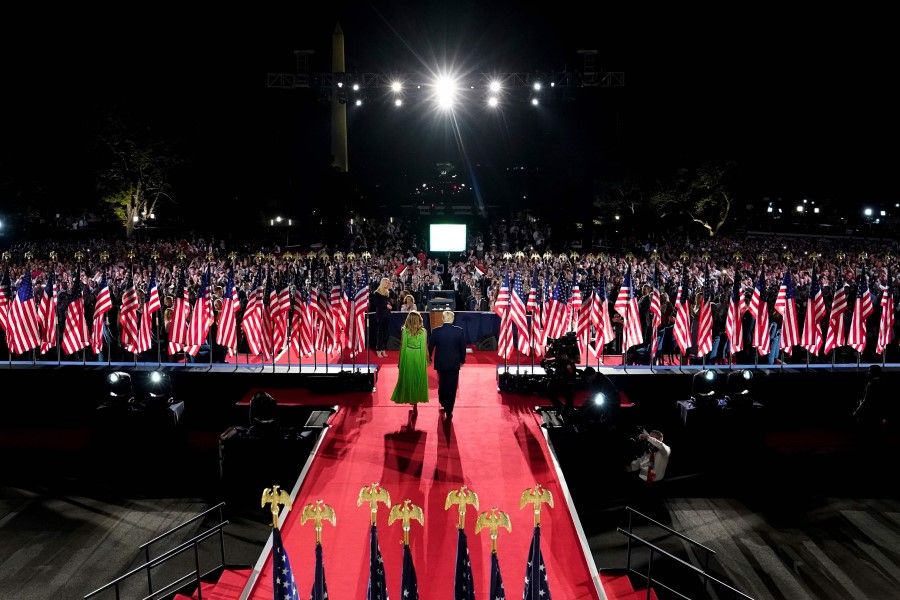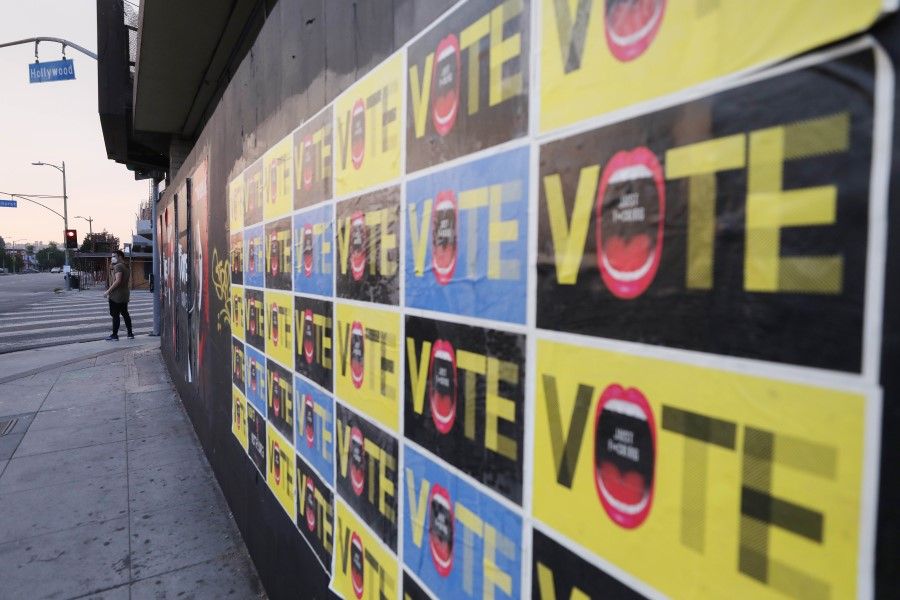A win for Biden is a win for China?

The China-US relationship is the most important bilateral relationship in the world and has the power to determine the 21st century world order. This relationship is also at a historical turning point now - China-US relations over the next four years will depend on the outcome of the current US presidential election. The American voters will not only decide the next president of the US, but also the future of China-US relations.
China is one of the most intensely debated topics in this US presidential election. While China was also featured in previous elections, and it was common for candidates to show a tough stance towards China, this time there is a big difference: the American public is suffering firsthand the impact of the coronavirus, which is inevitably linked to China, and people are made to take notice of the two parties' stance towards China. In selecting their president, they are also showing where they stand on China.
Democrats want to stand up to China but are against new Cold War
On China, the 2020 Democratic Party Platform document says the Democrats will "stand up to efforts from China and other state actors to steal America's intellectual property and will demand China and other countries cease and desist from conducting cyberespionage against our companies"; "repair the damage President Trump's reckless policies have done to American farmers, by working with our allies to stand up to China and negotiate from the strongest possible position"; "mobilise a united front to keep states like China from outsourcing pollution to other countries"; "negotiate arms control agreements that reflect the emergence of new players like China"; "condemn the internment of more than one million Uighurs and other ethnic minorities"; "work with our allies to mobilise more than half the world's economy to stand up to China".
The Republicans' party platform remains the same as in 2016, while Trump's second-term agenda has "End our reliance on China" third on a list of ten main items. To the Democratic Party, Trump's weakness when it comes to China is unilateralism and damaging relations with allies; the Trump administration has put the rest of the items into action. Trump has also promised to bring a million manufacturing jobs from China back to the US, provide tax incentives for these companies, not give federal government contracts to companies that purchase from China, and to hold China accountable for the global spread of the coronavirus.
It is apparent that the Democrats' wishes regarding the tariff war, new Cold War, and reviving dialogue are China's best bets.

When it comes to China, the Democrats are different from the Republicans in wanting to get out of a tariff war and avoid a new Cold War; although it would also want to "get tough" on China through a "united front" with allies, it is in favour of reviving a dialogue with China. On the Taiwan issue, reference to the "One China" principle has been removed from the Democratic party platform; what remains is a commitment to the Taiwan Relations Act. It is apparent that the Democrats' wishes regarding the tariff war, new Cold War, and reviving dialogue are China's best bets.
Possible to reset the clock on US-China relations
If the US can indeed get out of a tariff war, avoid a new Cold War, and revive a dialogue with China, that would immediately ease China-US tensions. Many of the Trump administration's actions to pressurise China could be removed or put on hold, and China-US relations would go back to the time of Obama's strategy towards China, albeit a tougher version. This would mean China-US trade relations would have a chance to go back to what they were before - tense political confrontation would ease while military tensions in the South China Sea would also cool down. With the external environment more amenable to China, there would be a chance again for China to overtake the US. So, Biden getting elected would be good for China.
Looking at Biden's earlier interactions with China, he has a good relationship with China's politicians. In 1979, during the early days of US-China diplomatic relations, he met Deng Xiaoping on his first visit to China as a senator. In 2001, he visited China again as chairman of the Senate Foreign Relations Committee. Before that trip, he said that a US conservative think tank considered China a potential enemy, but he disagreed with that view. As vice president, Biden had met with Chinese President Xi Jinping several times and described Xi as a "smart" friend who impressed him with "openness and candour". And at an election event in May 2019, Biden said of China: "They're not competition for us."
If Trump gets re-elected, China will be in bigger trouble, and a lot has to do with Trump's style.
After being criticised for being "weak" on China, Biden started to get increasingly tough on China, criticising the Chinese government's moves on Xinjiang, Hong Kong, South China Sea, and trade issues. He called Xi a "thug", accused China of interfering with the US elections, and said that if he is elected, he will ramp up pressure on China along with America's international allies. Biden's election team has tagged the Xinjiang issue as "genocide", and Biden has also said that if he is elected, he will meet the Dalai Lama and sanction the Chinese officials involved. Will Biden follow through with his election promises? It is hard to say. But as long as there is no Cold War with China, that is good for China.

Odds worse for China under Trump
If Trump gets re-elected, China will be in bigger trouble, and a lot has to do with Trump's style. New York Times columnist Thomas Friedman - author of the book The World Is Flat - wrote on 26 August: "Trump has been tougher on China than any previous president, and rightly so in my view. As a friend of mine who does business in China likes to say: Trump is not the American president America deserves, but he is the American president China deserves." Trump seems to be China's nemesis, chosen by the American people.
Looking at the line on ending reliance on China, and the trade war, and the US's increasingly aggressive moves against China, one has to be pessimistic about the outlook of China-US relations. The conflict between the current Republican government and China has escalated to involve ideology and political systems. The opposition between China and the US is there; we can leave it to the academics to say if it is a new Cold War, but it is crucial to see current China-US relations as they are.
Given Trump's personality, he has kept his word. Over four years in office, he has mostly delivered on his election promises to the American people...
If Trump does manage to get China to take full responsibility for the global spread of the coronavirus, that will definitely exacerbate already deteriorating relations. The Chinese government will stand firm and fight to the end. And with China refusing to make any concessions, the US government will continue to find excuses to sanction and punish China - it might even stir up trouble in the South China Sea, where there is an extremely high possibility of something being sparked off between China and the US.
Trump keeps his promises
Given Trump's personality, he has kept his word. Over four years in office, he has mostly delivered on his election promises to the American people, from tax reform, loosening corporate regulations, backing out of trade agreements, to bringing back jobs and building a border wall. Associated Press quoted presidential historian Douglas Brinkley of Rice University saying: "I think the golden egg of Trump's reelection effort is going to be the promises kept, such as getting two Supreme Court justices in power and keeping America out of foreign wars like Afghanistan and Iraq." So, is it not clear what Trump's re-election would mean for China?

On 27 August, on the last night of the Republican National Convention, Trump formally accepted his Republican nomination and repeated that he would "hold them [China] fully accountable for the tragedy that they caused all over the world" - referring to the "pandemic that China allowed to spread around the globe". He even said: "China supports Joe Biden and it desperately wants him to win. I can tell you that upon very good information."
On 19 August, the Global Times published an English article supporting Biden, saying that he would be "smoother to deal with" for China if elected. Biden has been charged with reviving the Obama legacy. People's Daily published a 30,000-word rebuttal of Pompeo's Nixon Library speech on China, titled "The Lies About China in Pompeo's Speech, and the Truth" (蓬佩奥涉华演讲的满嘴谎言与事实真相). The essay seemed to be attacking Pompeo, but it was criticising the Trump administration's policy towards China, showing the Chinese government's resolve to stand up to the Trump administration.
China-US relations determine the external environment for China, and would even affect China's domestic politics.
US elections will decide course of US-China relations
China is not in control of whoever is elected as US President; the important thing is to avoid misjudgement. In August 2020, China expert David Shambaugh wrote in The Wall Street Journal: "For its part, the Chinese government needs to ask itself why it didn't see this major US shift coming. China's America specialists and intelligence analysts badly failed to predict or understand the deep changes in US thinking about China over the past decade, and they still fail to see any fault on China's side."
China-US relations determine the external environment for China, and would even affect China's domestic politics - one example is Cai Xia, a former professor at the Central Party School of the Communist Party of China, being stripped of party membership.* Allowing American voters to decide China-US relations is an awkward situation.

On 2 October, Trump tested positive for the coronavirus, and started a course of treatment. He is not the first world leader to test positive for the coronavirus; British Prime Minister Boris Johnson and Brazilian President Jair Bolsonaro also previously tested positive, but both have since recovered - Johnson was hospitalised at one point. The past few months have shown that the coronavirus affects different people differently, and so there are still unknowns. Trump's illness has injected uncertainty to the US presidential election, and it is premature to assess Trump's chances based on that.
Editor's Note:
*Cai Xia denounced both the Chinese Communist Party (CCP) and Xi in her recent speeches and essays. She described the CCP as "a political zombie" and called Xi a "mafia boss", leading to her expulsion from the party. After which, Cai continued to talk to the press, blaming Xi for "killing a party and a country" and turning China into "an enemy" of the world. Cai is now living in the US.
